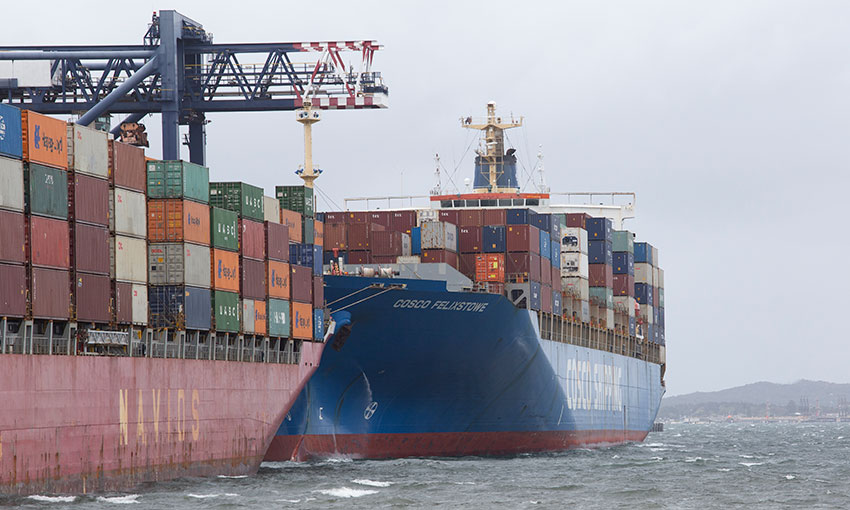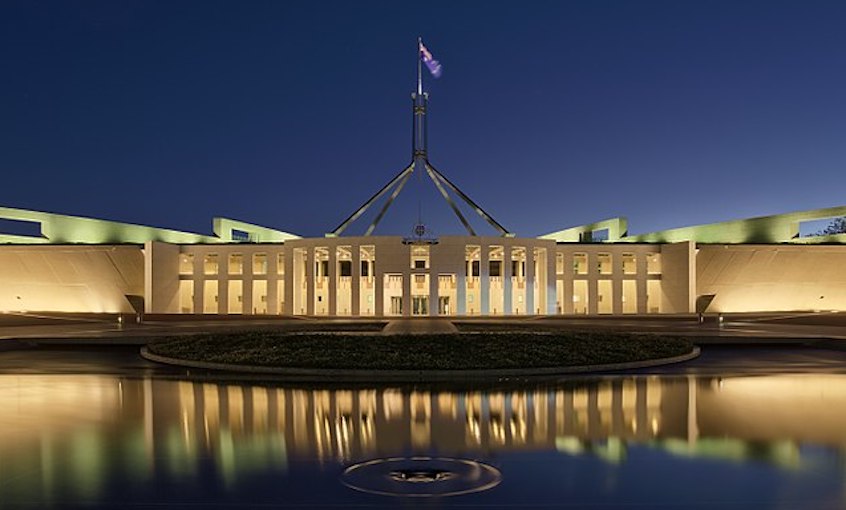A BILL before Parliament, which intends to amend fair work legislation, has been met with optimism for the workplace bargaining system but concern for the supply chain.
Employment and workplace relations minister Tony Burke tabled the Fair Work Legislation Amendment (Secure Jobs, Better Pay) Bill on Thursday 27 October.
Workplace bargaining came into focus during the lead-up to the Jobs and Skills Summit and as Svitzer Australia moved to terminate its enterprise bargaining agreement with unions representing the company’s tug workers.
Mr Burke has raised concerns about the ability of businesses to unilaterally cut workers’ pay under a “broken” bargaining system, a view reinforced in a speech to Parliament.
“Australia’s bargaining system is not working effectively and hasn’t worked effectively for a long time,” he said in his speech.
Mr Burke said reforms outlined in the bill would remove “unnecessary limitations” from the existing bargaining framework.
“Multi-employer bargaining is already contemplated by the act through three streams – single interest, multi-employer and low paid. The problem is it isn’t working,” he said.
“Bargaining at the enterprise level delivers strong productivity benefits and is intended to remain the primary and preferred type of agreement making.
“For employees and employers that have not been able to access the benefits of enterprise level bargaining, these reforms will provide flexible options for reaching agreements at the multi-employer level.”
The bill also intends to allow the Fair Work Commission to resolve intractable disputes through arbitration, where there is no reasonable prospect of agreement being reached.
“These changes are intended to provide a strong incentive for good-faith negotiations, reduce the time for enterprise agreements to be finalised and allow for quicker resolution of intractable disputes.”
Mr Burke also addressed the termination of enterprise bargaining agreements, noting the bill would limit the circumstances in which an agreement can be terminated by the Fair Work Commission if the application has been made by only one party.
“To address this challenge, when determining unilateral application for termination of agreement, the bill requires the Fair Work Commission to consider whether bargaining is underway and whether the termination would adversely affect employees’ bargaining position,” he said.
“The commission will have the capacity to terminate an agreement where its continued operation would pose a significant threat to the viability of the employer’s business, and termination would likely reduce the potential of job losses, and the employer guarantees to pay employees the relevant termination entitlements.”
Outcomes for workers
The Australian Institute of Marine and Power Engineers highlighted the bill’s potential ability to block employers’ attempts to terminate agreements.
AIMPE is one of three unions engaged in industrial action against Svitzer Australia, alongside the Maritime Union of Australia and the Australian Maritime Officers Union.
“If the bill is passed by Parliament this could stop the endless delays in bargaining that have frustrated all unions around Australia,” AIMPE said in a statement.
“The proposed simplification of the EA approval procedures may assist in a quicker path to processing new EAs once negotiations have concluded – again reducing delays.”
According to AIMPE, the bill also contains transitional provisions relating to applications to terminate agreements, requiring the Fair Work Commission to apply the new tests if it has not yet made a decision.
“That is particularly relevant for members employed by Svitzer because it makes it more likely that the new law will apply to the Svitzer application to terminate their current agreement – as long as the bill passes into law before any decision is made.”
Supply-chain impacts
But Shipping Australia CEO Captain Melwyn Noronha told DCN there is concern about how proposed reforms will impact the nation’s supply chains.
On initial reading of the bill, he believes the federal government is about to “hand an awful lot of control over the whole supply chain … over to the unions”.
He said the the bill appears to enable unions to force multiple employers to take part in enterprise bargaining.
“Enterprise bargaining leads to protected industrial action, [for example] work stoppages,” he said.
“If these stoppages are frequent, intense, and worst of all, take place at the same time at each of the major container terminal operators, then there could be considerable disruption.”
Mr Noronha suggested trucking, warehousing, distribution and logistics businesses could also be subject to “renewed and intense” industrial action, impacting the flow of container supply chains.
“Shortages of goods and a return to the snarl up of empty container logistics chains could re-occur,” he said.
“Importers and exporters could be hit with a loss of access to markets, fewer services, erosion of the economic value of goods, which might get stuck en-route to customers and increasing costs right across the supply chain.
“Without much in the way of countervailing power … key supply-chain businesses such as waterfront terminals (but also including trucking companies, logistics centres and warehouses among others), could be forced to give in to unions.
“Giving in means companies right across the supply chain being forced to jack up prices to pay for union demands.”
Mr Noronha emphasised an estimated “99.96% of everything” that comes in or out of Australia goes over a wharf.
“Higher costs and industrial disruption could worsen the competitive position of our major export industries, such as iron ore, coal, and gas, and it could spark increased inflation across the country at a time of already increasing prices.
“Ultimately, ordinary Australian families will pay the costs. They will pay through a lesser availability of goods at higher prices. Australian families can only hope that the unions will exercise goodwill and restraint. Because, otherwise, there’s very little to constrain unions in this bill.”
Shipping Australia’s concerns were shared by national employer association Ai Group, which argued the proposed amendment would put the country at risk of more strikes, fewer jobs, centralised decision making and less trust within enterprises.
“Sustainable jobs and wage increases don’t come with a union gun being held to an employer’s head,” Ai Group chief executive Innes Willox said.
“To pass this bill after a rushed and unsatisfactory process which, in the end, has unfortunately catered to outdated and radical union demands would be a disaster for workers, small and large business employers and our economy.
He suggested turning workplaces into “conflict zones” would increase economic pressures, and employers “look forward to further and fuller consultation”.
“Artificial deadlines of having legislation finalised by the time parliament rises on 1 December are neither helpful nor appropriate given the importance of what is at stake.”





